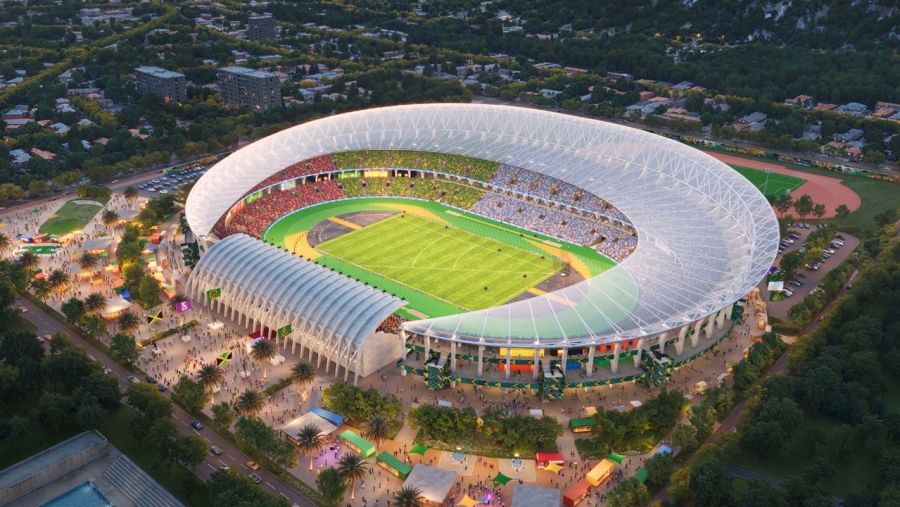Kingston, 16 July 2025 – The Minister of Culture, Gender, Entertainment and Sport, the Honourable Olivia Grange, says the redevelopment of Jamaica’s National Stadium is not only a critical investment in the nation’s athletes but also a powerful symbol of international collaboration, notably the longstanding and fruitful partnership between Jamaica and the United Kingdom.
Speaking at a news conference today (Wednesday), Minister Grange said, “We must ensure that our facilities are in the best state for our athletes to train and perform. We are world leaders in track and field especially and so we must have in place the infrastructure and resources that will ensure us perpetuity.”
She noted that meeting international standards is essential if Jamaica is to continue hosting regional and global events sanctioned by international governing bodies.
“The renovative work we are doing to the National Stadium is designed to see us through another 30 years without the need for major upgrades. It will put us in a position to bid for international single-sport events,” she stated.
Minister Grange also provided an update on the consultation closing Phase One of the project, led by renowned UK-based firms Ryder Architecture and CAA ICON, with key support from the British High Commission in Kingston, which helped finance the feasibility study.
“I am pleased with the work of the Ryder Architecture and CAA ICON team and express sincere thanks to the British High Commission for its partnership and support,” Minister Grange said.
For his part, Jonathan Cook, Deputy British High Commissioner to Jamaica, hailed the project as “a milestone for both countries.”
“It marks a really exciting milestone, not just for Jamaica but the UK-Jamaica partnership. We’re proud to stand alongside the Ministry of Culture, Gender, Entertainment and Sport as this bold vision for the redevelopment of the National Stadium takes shape. It’s truly wonderful to see two leading UK firms- Ryder Architecture and CAA ICON, at the heart of this project. I’m thrilled that their expertise and the best in British design and innovation are contributing to such a high-priority national initiative.”
The project, primarily funded by the Government of Jamaica, forms part of a Framework for Cooperation with the UK and includes a thorough economic and feasibility study to identify both local and international market demand, ensuring that stadium usage and design align with long-term economic viability.
Construction is slated to begin in 2026 and expected to be completed by 2029.
The redeveloped stadium will include: Seating for 37,500 patrons, 90% roof coverage, tiered parking for 4,500 vehicles, including 1,000 VIP parking, upgraded health and safety standards, modern anti-doping and media facilities, a sports museum, more green spaces, and enhanced amenities, conference and meeting rooms, premium suites and lounges, 30 boxes, two VIP Zones, and two VIP lounges.
During phased renovations, the stadium will remain operational for events.
Meanwhile, Jonathan Seebacher, Principal and Project Director at Ryder Architecture, described the effort as transformational:
“We are incredibly proud to be launching the Independence Park Stadium Project in the heart of Kingston. This project represents a transformative moment for the nation, honouring Jamaica’s rich sporting legacy while delivering a world-class, future-ready stadium and cultural offer. This is more than a stadium, it is a symbol of ambition, unity, and cements Jamaica’s place on the world stage.”
END
 Government of Jamaica
Government of Jamaica
